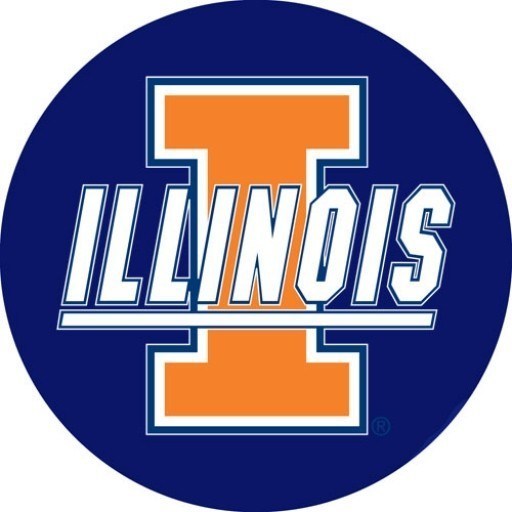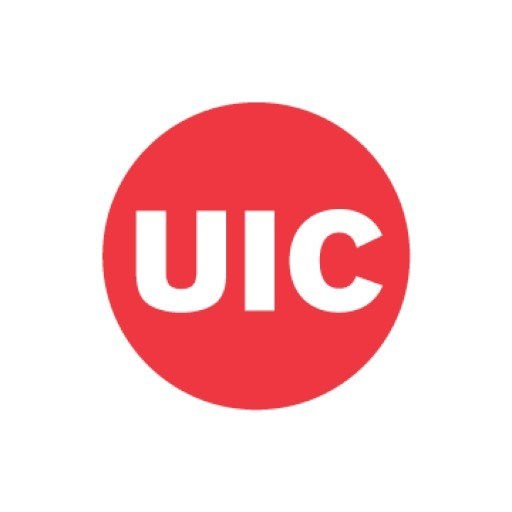Photos of university / #johnshopkinsu
Civil Engineering at Johns Hopkins University is a comprehensive and rigorous program designed to equip students with the fundamental principles and practical skills necessary to design, analyze, and manage infrastructure systems that are essential to modern society. The curriculum integrates core engineering sciences with specialized coursework in structural analysis, transportation, environmental engineering, geotechnical engineering, and construction management. Students are encouraged to develop a strong foundation in mathematics, physics, and computer-aided design, enabling them to tackle complex engineering challenges with innovative solutions. The program emphasizes hands-on learning through laboratory experiments, design projects, and collaborative teamwork, fostering critical thinking and problem-solving capabilities. Students have opportunities to engage in cutting-edge research initiatives, often collaborating with faculty who are renowned experts in their fields. The program also highlights sustainable development practices and the importance of resilient infrastructure, preparing graduates to address pressing global challenges such as climate change, urbanization, and resource management. With access to state-of-the-art facilities and a vibrant academic community, students can customize their learning experience through elective courses and internships that align with their career interests. Graduates of the Civil Engineering program at Johns Hopkins University are well-prepared for leadership roles in engineering consultancy firms, construction companies, government agencies, and research institutions. They possess a balance of technical expertise, ethical considerations, and project management skills necessary for innovative contributions to the development of sustainable, safe, and efficient infrastructure worldwide.
Ph.D. student requirements for the Civil Engineering Department include:
- 8 Courses, at the 600- or 700-level, completed with a grade of B or better
- Department Qualifying Examination (DQE)
- Annual Meetings and Reports to Ph.D. Advisory Committee
- Graduate Board Oral Examination (GBO)
- Responsible Conduct of Research Course (AS.360.625) and
- Academic Ethics (EN.500.603)
- Final Ph.D. Thesis Defense
Typical Timeline for Ph.D. Students
Year 1 Fall:
- Arrival prior to start of classes
- Selection of first semester courses (typically 4) with Director of Graduate Studies or research advisor
- Language/communication testing and placement for International Students
- Responsible Conduct of Research Course (AS.360.625)
- Academic Ethics Course (EN.500.603)
- First semester coursework and teaching assistant/research assistant duties where assigned
- Determination of permanent advisor in first semester
Year 1 Intersession:
- Intersession research
- Oral Department Qualifying Exam (DQE) (completed in early January)
- Annual review completed by January 31
Year 1 Spring:
- Second semester coursework and teaching assistant/research assistant duties where assigned
- Advisor and student identify Ph.D. Thesis Committee and student meets with members individually
Year 1 Summer:
- Research
Year 2 Fall:
- Research
- Coursework (typically finishing up this semester)
- Ph.D. Thesis Committee Meeting required prior to end of Fall semester
Year 2 Intersession:
- Research
- Annual review completed by January 31
Year 2 Spring:
- Research
- Coursework (if necessary)
Year 2 Summer:
- Research
Year 3:
- Research (Year-round)
- Ph.D. Thesis Committee Meeting
- Annual review completed by January 31
- GBO: Exact timing determined by advisor in consultation with the student
Year 4 and Beyond:
- Research (Year-round)
- Ph.D. Thesis Committee Meeting every Fall prior to the end of the semester
- Annual review completed by January 31
Final semester:
- Thesis Defense
Language/Communication Testing and Placement
All Ph.D. students who do not have a prior degree from an English speaking university must take an English Language Assessment. If it is determined at the assessment that the student needs further English language instruction, he/she will be required to take 370.600 or equivalent.
Determination of Permanent Advisor
In some cases students are admitted to work with a specific advisor, in which case the permanent advisor is the faculty member listed in the admissions letter. In most instances students are not assigned a specific advisor at the time of the admission letter, in which case the Director of Graduate Studies will advise students on their coursework for the first semester.
During September and October of the first semester, these students should meet with the faculty, discuss their research interests, and learn more about the research being conducted by the faculty. By the beginning of November the student must state his/her preference(s) for a permanent advisor. The faculty will meet and determine the final advisor placements prior to the end of the semester. Every effort will be made to match students with their requested advisors, but financial constraints may not always make this possible.
Intersession
Intersession (the period between Fall and Spring terms) is an important time for research. Intersession is not a vacation. Any leave taken during intersession is subject to the policies outlined in the Graduate Student Assistant Leave Guidelines. Release time (if any) granted in that period must be approved by the advisor.
Department Qualifying Examination (DQE)
The DQE is a comprehensive oral exam designed to determine whether or not the student is properly prepared to continue in the Ph.D. program. All first-year students studying for a Ph.D. take the DQE after their first semester of enrollment, typically in early January of the first year. This exam tests whether the student is prepared to continue in their Ph.D. studies based on their grasp of basic undergraduate-level and introductory graduate-level Civil Engineering knowledge. Possible outcomes of the exam are Pass or Fail. Only an outcome of Pass will allow the student to continue in the Ph.D. program. If the outcome of the exam is Fail, the student may pursue, with approval from the chair, a M.S.E. degree. Financial support for such a student during this period is not typical.
Annual Reviews
Reviews of all Ph.D. students in Civil Engineering must be performed annually prior to January 31, which is consistent with the WSE policy found on the WSE Academic Policies & Procedures webpage. The review process follows the format given in the annual review form. The completed form must be submitted to the Academic Program Coordinator by January 31. If this annual review is not completed by this date, the student’s funding may be jeopardized.
Ph.D. Thesis Committee
Every Ph.D. student must have a Thesis Committee of at least 3 faculty members. The Advisor, in consultation with his/her Student, selects the makeup of the committee, and this information is recorded in the student’s file. The student is expected to meet with this committee a minimum of once per year. The thesis committee also typically serves as a subset of the actual GBO examination committee and forms the final Ph.D. defense committee. This committee must consist of a minimum of 2 full-time faculty of the Civil Engineering Department.
Ph.D. Thesis Committee Meeting
Thesis Committee meetings are expected to occur annually in the fall from Year 2 until the Ph.D. final defense. The student is required to submit a report to the committee members at least one week prior to the meeting. A typical report would include a literature review of the field relevant to the student’s research, a progress report of research performed to date, goals for research in the coming year, and a basic timeline of expected activities in the remaining years of the Ph.D. degree. The committee meeting should consist of a presentation of key aspects of the report, along with discussion and feedback from the Thesis Committee. In certain cases, particularly in later years of the Ph.D. degree, it may be deemed acceptable for the student to meet individually with members of the committee in lieu of the group meeting; however, such an exception can only be granted with permission of the Advisor and all committee members. Once the Thesis Committee meeting is completed, the Ph.D. Thesis Committee Meeting Form must be signed by the members of the committee and submitted to the Department.
Responsible Conduct of Research
Every Ph.D. student of the Whiting School of Engineering is required to take a Responsible Conduct of Research course (details on the requirement can be found on the WSE Policy on the Responsible Conduct of Research Training webpage. For Civil Engineering students, this should be completed in the Fall or Spring of the first year of studies. Students who do not complete this requirement prior to Fall of their third year of studies may put their funding in jeopardy.
GBO Examination
The University maintains complete guidelines for the Graduate Board Orals here. The GBO committee consists of 5 members, (3 in Department, 2 outside) with 2 alternates (1 in Department, 1 outside) and is selected by the Chair of the Department and the Director of Graduate Studies, who will consult with the student’s advisor. When a Ph.D. student and advisor feel that the student is ready to take the GBO, the advisor should consult with the Director of Graduate Studies and the Civil Engineering Academic Program Coordinator to initiate the process of scheduling the exam. Both students and advisors should be aware that 4-6 weeks advance notice is needed in order to allow for scheduling the exam with the faculty and with the Graduate Board.
The exact format of each GBO examination is specified by the individual Chair of the GBO committee. The student may be requested to provide to the GBO committee prior to the examination some written document describing his or her research. In such cases, the latest annual Thesis Committee report and/or a recent conference or journal publication may suffice. It is typical that the student would be asked to provide a brief presentation of research at the beginning of the examination (no more than 10 slides, no longer than 10 minutes). The examination questions may be on any topic of the committee members’ choosing, but many of the questions relate to the student’s coursework and research. At the conclusion of the examination, the GBO committee may recommend pass, conditional, pass, fail with re-examination, fail (final) as detailed here.
M.S.E. Degree for Ph.D. Students
Ph.D. students may petition for a M.S.E. degree following their GBO Examination. If the student passes the GBO, he/she may file for a non-terminal M.S.E. degree. If the student fails (final) the GBO, he/she may petition for a terminal M.S.E. degree. In all instances the students must have satisfied the M.S.E. degree course requirements as detailed here.
In instances where the research is highly interdepartmental, the student, with permission of the advisor, may request that the M.S.E. degree be awarded by another department in the Whiting School of Engineering. In such cases, the student must have satisfied M.S.E. degree requirements and receive the approval of, and an accepted application to, the awarding Department, as well as satisfied M.S.E. degree requirements of the Civil Engineering Department and receive approval from the Civil Engineering Chair. In all cases, the awarding of any JHU M.S.E. degree to a Civil Engineering Ph.D. student may only occur after the student has completed the GBO exam.
Thesis Defense
The Thesis Defense is the final examination before conferral of the Ph.D. degree. The student defends his/her thesis in a seminar setting that is open to the public. The seminar is followed by a comprehensive examination of the student, focused on the thesis research.
Ethics: The Department of Civil Engineering is dedicated to upholding the highest standards of academic and research integrity. Plagiarism, and other forms of unethical conduct, are not tolerated. Students are referred to the Graduate Student Resources webpage of the Whiting School of Engineering for these and other policies related to graduate students. .
Defense Committee: A committee of at least 3 members administers the exam (typically the Ph.D. Thesis Committee). The Advisor, in consultation with the Department, selects the committee members, at least 2 of whom must be full-time faculty of the Civil Engineering Department. This should be done at the beginning of the semester in which the student plans to graduate. It is the student’s responsibility to keep the committee members apprised of all deadline dates.
Scheduling and Pre-Defense: The defense should be scheduled at least 3 weeks in advance through the Department’s Academic Coordinator. A complete written dissertation should be given to the committee at least 14 days in advance of the defense. Failure to meet this 2 week deadline will result in rescheduling the Ph.D. defense. The date and place of the defense, along with the thesis abstract, should be circulated 5-7 days prior to the defense.
Post-Defense: Completion of the Ph.D. requirements typically takes 4-8 weeks after a successful defense examination. All data and source codes related to the thesis should be properly archived according to requirements set forth by the Advisor. Any changes or additions specifically requested by the reviewers before or during the defense seminar should be incorporated into the thesis in consultation with the Advisor. A final copy of the thesis must then be made available to the reviewers for inspection no less than 48 hours before the deadline date for filing set by the Graduate Board. Upon approval, the student should submit a copy of the thesis and the Department’s “Certification for Advanced Degrees” form to the Department Administrative Assistant. In return, the Department will send to the Graduate Board Office or the Whiting School of Engineering Graduate Committee the “Certification of Completion of Department Requirements for an Advanced Degree,” signed by the Department Chairman.
Additional Information: It is the responsibility of the student to be aware of requirements and deadlines. It is suggested that this information be obtained before the start of the semester of intended graduation. All students should plan the timing of the final defense accordingly (making sure to account for the 4-8 week period following the defense) to satisfy any deadlines related to upcoming graduation or exhaustion of funding.
University requirements for the thesis can be obtained from the Graduate Board web site. Information sheets entitled “Dissertation Requirements” are available to student and contain details on the form, cost and timing for submitting the thesis. Doctoral Theses must be submitted to both the ETD (Library) and the Department of Civil Engineering. The deadline date for filing is set by the Graduate Board Office. This date also applies to filing with the Whiting School Graduate Committee and with the Department. A receipt of ETD approval must be sent to the department, Graduate Board/WSE Office of Academic Affairs (for M.S.E. students).
- Letters of Recommendation (3),
- GRE,
- TOEFL/IELTS,
- Statement of Purpose,
- Transcripts
Scholarships
A limited amount of financial assistance is available to Civil Engineering graduate students is available in the form of teaching assistantships, research assistantships, and partial or complete tuition fellowships, including fellowships from the Joseph Meyerhoff Scholarship Fund, the Richard D. Hickman Endowment, and the Hoomes Rich Graduate Fellowship. Fellowships and Assistantships are awarded on a competitive basis and continued support is subject to the student’s performance and future availability of research or teaching assistantship funds.
The Civil Engineering program at Johns Hopkins University provides students with a comprehensive education in the fundamental principles and advanced topics relevant to the design, construction, and maintenance of infrastructure projects. The curriculum emphasizes a blend of theoretical knowledge and practical skills, preparing graduates for careers in areas such as structural engineering, transportation, environmental engineering, and construction management. Students have the opportunity to engage in hands-on projects, laboratories, and research initiatives that foster critical thinking and problem-solving abilities. Johns Hopkins' renowned faculty members are experts in their fields, guiding students through rigorous coursework and mentorship. The program also offers interdisciplinary courses that integrate concepts from ecology, urban planning, and technology, reflecting the evolving nature of civil engineering challenges in a sustainable future. Students may benefit from state-of-the-art facilities, collaborations with industry partners, and internship opportunities that provide real-world experience. Graduates of the program are equipped to contribute to the development of resilient infrastructure solutions, advancing policies and innovations that address societal needs and environmental concerns. The program encourages participation in professional organizations and conferences to enhance networking and career development. Overall, the Civil Engineering program at Johns Hopkins University aims to cultivate highly skilled engineers capable of leading complex projects and making meaningful contributions to society, embracing the university's commitment to research excellence and societal impact.



